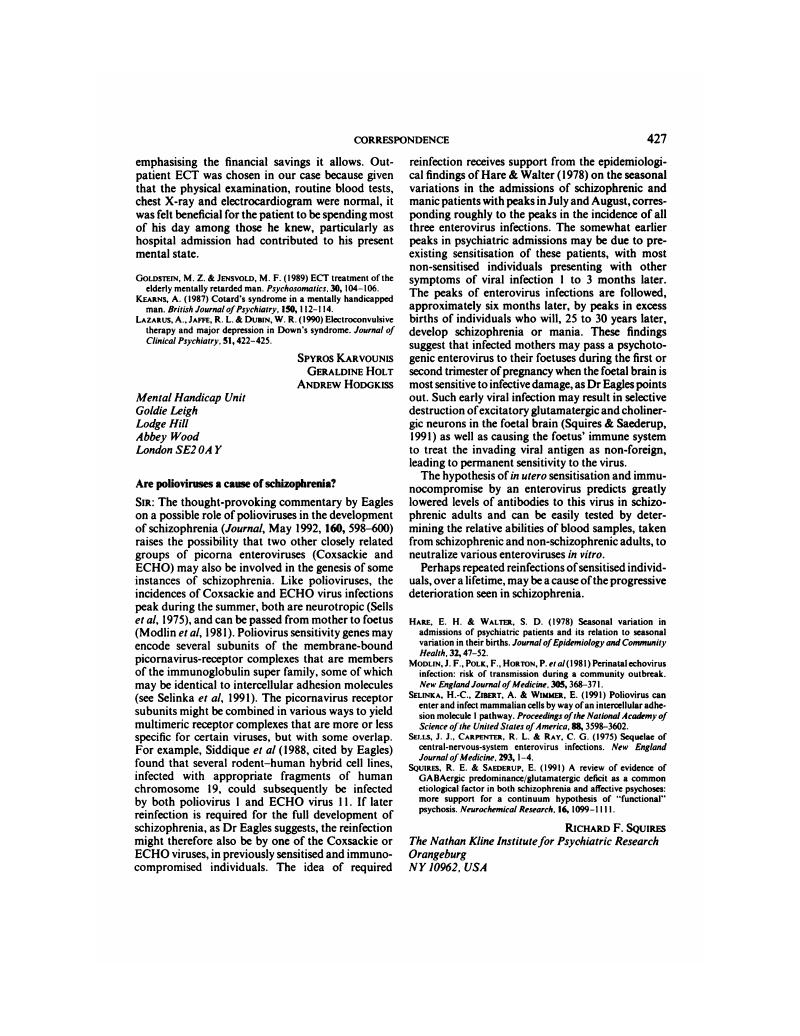Crossref Citations
This article has been cited by the following publications. This list is generated based on data provided by Crossref.
Bendig, J.W.A.
and
Molyneaux, P.
1996.
Sensitivity and specificity of μ-capture ELISA for detection of enterovirus IgM.
Journal of Virological Methods,
Vol. 59,
Issue. 1-2,
p.
23.
Abzug, Mark J.
and
Rotbart, Harley A.
1999.
Enterovirus infections of neonates and infants.
Seminars in Pediatric Infectious Diseases,
Vol. 10,
Issue. 3,
p.
169.
Abzug, Mark J.
2014.
Human Enterovirus Infections.
p.
221.




eLetters
No eLetters have been published for this article.